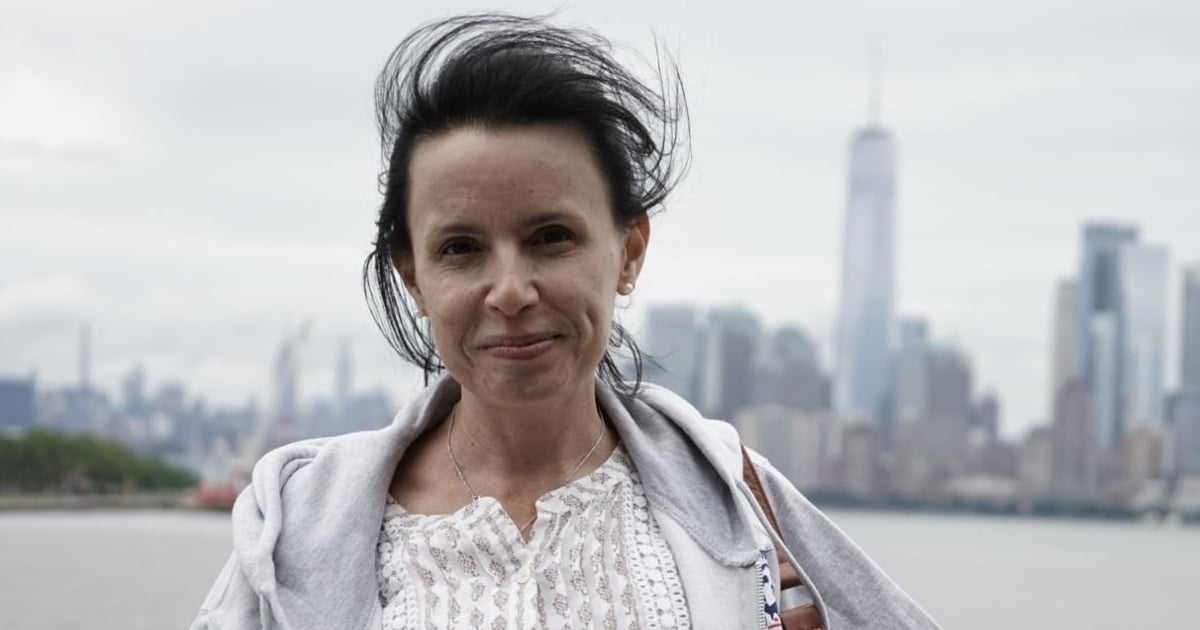The United States has recently refused to issue a study visa to Omara Ruiz Urquiola, a Cuban academic known for her strong stance against the authoritarian regime led by Miguel Díaz-Canel. Last May, Ruiz Urquiola was awarded a scholarship by the Cuban Research Institute at Florida International University (FIU) under the Program for Cuban Scholars at Risk in the Humanities. She was supposed to begin her studies in the 2023-2024 academic year, but bureaucratic hurdles have stood in her way.
As a prominent dissident, Ruiz Urquiola, who was involved in the San Isidro Movement and is mentioned in the iconic song "Patria y Vida" by rapper Maykel Osorbo, faces obstacles both from the Cuban regime and the U.S. immigration system. The Cuban government has barred her from returning to Cuba, and she refuses to be forced into a U.S. immigration status that would undermine her rights as a Cuban citizen. "I didn't choose exile; I was not allowed to return," she told CiberCuba in an interview.
Visa Denial and Bureaucracy
The U.S. Citizenship and Immigration Services (USCIS) cited the expiration of the letter of invitation from FIU as the reason for denying her visa. Ruiz Urquiola explained that she needed a J1 visa for international students, but the Cuban Research Institute mishandled the application and delayed the process, resulting in the expiration of her university invitation (DS-2019). This has led to USCIS rejecting her visa application.
Accountability and Responsibility
Ruiz Urquiola places responsibility for her plight on the Cuban Research Institute at FIU, backed by the U.S. State Department's Office of Cuban Affairs. She points to Dr. Jorge Duany, the former director of the institute, as a key figure in the mismanagement of her scholarship process. Despite assurances, the office failed to respond adequately to her situation, leaving her without a legal status in the U.S. as her tourist visa expired in January 2023.
Possible Solutions and Institutional Critique
Ruiz Urquiola calls for a thorough investigation into the administration of the Mellon Foundation scholarship program for threatened Cuban scholars and insists that the Office of Cuban Affairs should honor its commitments. She criticizes the Cuban Research Institute's handling of the program, highlighting violations of transparency and institutional responsibility, which have undermined her rights and those of others facing political repression.
Her Commitment to Cuba
Despite the challenges, Ruiz Urquiola remains resolute in her desire to return to Cuba. "Not even after death would I give up on returning to my homeland," she states, emphasizing her unwavering commitment to her country. She criticizes the U.S. for enforcing Cuban directives and questions the motives behind such actions.
The Broader Cuban Crisis
Ruiz Urquiola expresses deep concern over the economic, migratory, and human rights crises affecting Cuba. She is particularly troubled by the state neglect in hospitals and rural areas, as well as the generational "cleansing" that threatens to leave Cuba as a barren land open to exploitation. She believes her forced exile is part of a broader strategy to weaken civil society and facilitate negotiations with the Cuban regime.
Support and Solidarity
While she has received support from a few key dissident intellectuals, Ruiz Urquiola notes that the solidarity from the censored academic community is significant. She acknowledges figures like Anamely Ramos and Camila Lobón, genuine Mellon Foundation scholarship recipients who have stood by her. Despite the risks, these individuals continue to advocate for academic freedom and justice.
